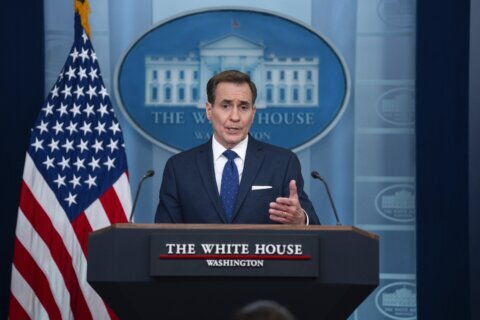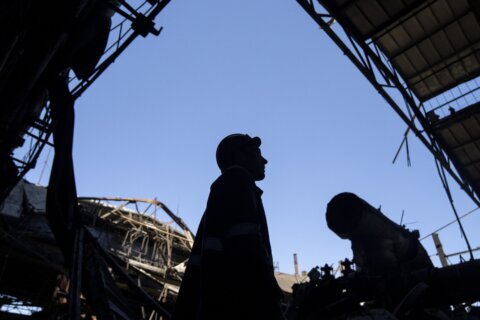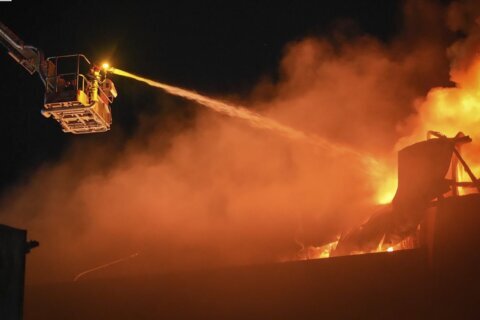BRUSSELS (AP) — The European Union said Monday that it has imposed fresh sanctions on Russia over its war against Ukraine, targeting the lucrative diamonds industry, more than 140 officials and organizations, and closing loopholes that Moscow has used to bypass previous punitive measures.
It’s the 12th round of sanctions and restrictions that the EU has slapped on Russia since President Vladimir Putin ordered his troops into Ukraine almost two years ago. The measures have targeted the energy sector, banks, companies and markets, and made over 1,000 Russian officials subject to asset freezes and travel bans.
EU headquarters said the latest measures would “deliver a further blow to Putin’s ability to wage war by targeting high-value sectors of the Russian economy and making it more difficult to circumvent EU sanctions.”
The import, purchase or transfer of Russian non-industrial natural and synthetic diamonds and diamond jewelry will be banned starting Jan. 1. The ban applies to diamonds originating in Russia, exported from Russia and transiting through Russia, as well as Russian diamonds processed elsewhere.
The EU estimates the diamond sector to be worth around $4.5 billion each year to Moscow.
The new round of sanctions also obliges EU companies to prohibit in their contracts the export of certain goods so buyers can’t sell them on to Russia, particularly “sensitive goods and technology” that could be used by the Russian armed forces in Ukraine.
Additional chemicals, lithium batteries, thermostats, certain electric motors that could be used in the manufacture of drones, and some machine tools and parts have been put on the EU’s list of restricted items banned for export to Russia.
Imports into the EU of some goods that generate significant revenue for Russia also were tightened, including on copper and aluminum wire, foil, quantities of tubes and pipes above a certain limit, and restrictions on liquefied propane.
The EU also added 29 more “entities” – often organizations, agencies, companies or banks – alleged to be supporting Russia’s military and industrial complex in the war against Ukraine. The entities and people whose assets have been frozen were not immediately named.
The sanctions were expected to be published in the EU’s official journal shortly, which allows for them to formally enter force.
The 27 EU countries will now consider imposing sanctions against people who benefit from the seizure of European assets or parts of companies in Russia. The member states will also come under tighter control to ensure they are actively tracing the assets of people targeted for sanctions.
___
Follow all of AP’s coverage of Europe: https://apnews.com/hub/europe
Copyright © 2024 The Associated Press. All rights reserved. This material may not be published, broadcast, written or redistributed.







